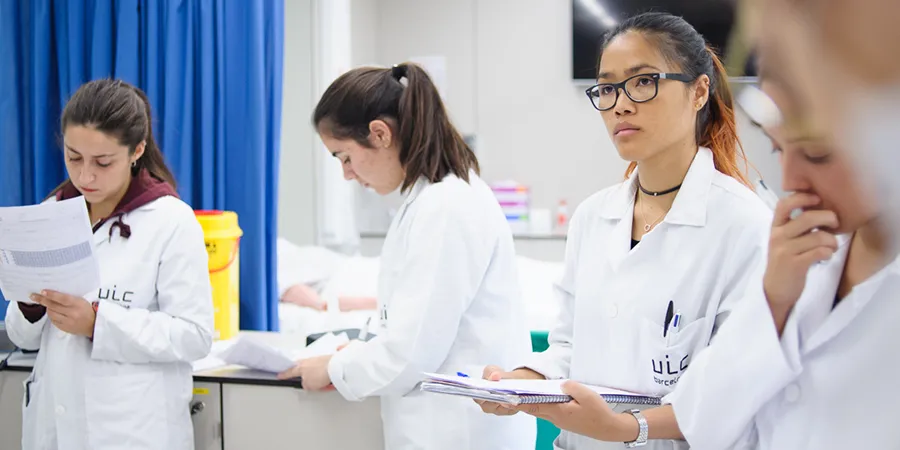Justification:
Society and healthcare experts are calling for nursing to take on a more decisive role, as they believe this could improve the efficiency of healthcare. Universities must respond to these social needs by giving teaching staff the resources they need to produce students capable of rejuvenating and improving society.
Objective:
This research aims to assess whether academic university teaching, with methodologies and assessment systems that place special emphasis on the numerous components of nursing leadership, can achieve higher leadership scores on the SALI scale, compared to a control group that receives traditional university teaching methods.
The hope is to prove that students’ leadership increases when they work on their teamwork, decision-making and communication skills, among others.
- Principal investigator: Dr Albert Gallart: agallart@uic.es
- Coordinators: Dr Albert Gallart, Dr Encarna Rodríguez, Dr M Luisa Martín
- Members of the SGR research team: Dr Pilar Fuster, Dr Marian de Juan, Dr Mireia Llauradó, Dr Laia Wennberg and Dr Jordi Castillo
A teaching innovation sub-project has been outlined within this line of research:
- Funded by: Teaching Innovation Classroom, UIC Barcelona and the Puig Foundation
- Justification
In order to face these new social healthcare challenges, academic institutions must be able to create learning opportunities for students to acquire the skills they need to address them. This acquisition of skills often requires innovative teaching methods. One of the proposed methods is student-led conferences. It would offer numerous benefits, including a bolstering the leadership skills of the students who take part in this activity.
General:
- To improve leadership skills for those bachelor’s degree students that take part in the activity and encourage them to be involved in the learning process.
Specific:
- To measure the level of improvement in the leadership skills of the students organising the scientific event.
- To assess to what extent these students have acquired written and oral communication skills.
- To measure the level of satisfaction with the methodology used to teach students and participants at the scientific event.
Principal investigator: Dr Mª Ángeles de Juan
Members of the SGR research team: Dr M Luisa Martín, Dr Albert Gallart, Dr Pilar Fuster, Dr Encarna Rodríguez, Dr Laia Wennberg, Dr Mireia Llauradó and Dr Marian Cerezuela.
